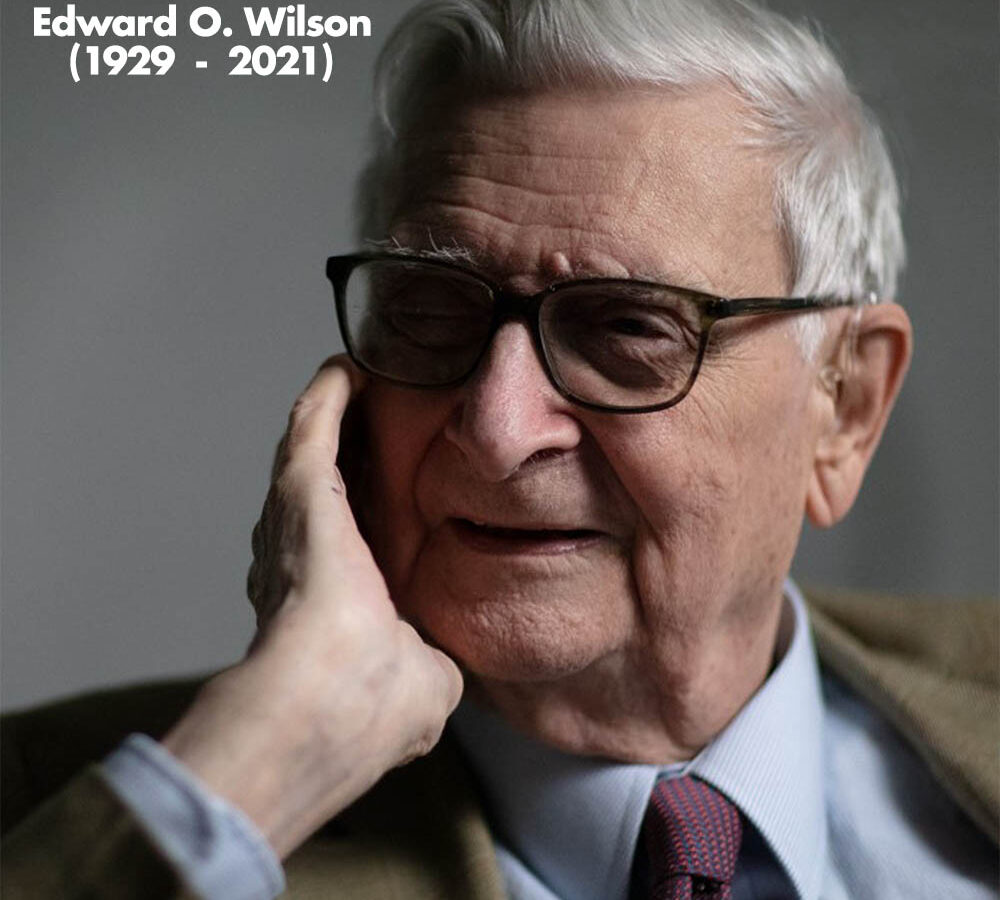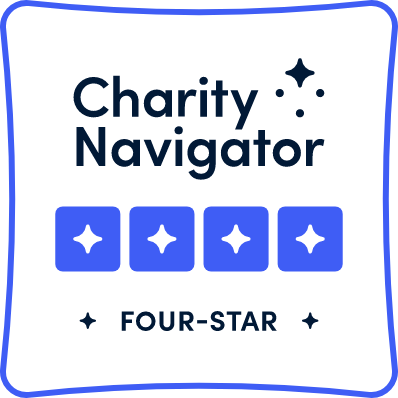

Originally published in Science Magazine, January 27, 2022.
By Stuart Pimm, Board of Advisors, E.O. Wilson Biodiversity Foundation
Edward Osborne Wilson, who wrote extensively on ants and popularized the field of sociobiology, died on 26 December 2021 at age 92. Ed vigorously promoted the idea of biodiversity and understood that the concepts of island biogeography apply to the fragmented habitats pervading much of the world. He titled his autobiography Naturalist and proudly considered himself to be one. Ants were his first love, and he used the insights he gained from studying them to understand the living world and the place of humans in it.
Ed was born in Birmingham, Alabama, on 10 June 1929, and he always celebrated his southern heritage. An early fishing accident left him blind in one eye. Because of this deficit, he was at greatest ease when studying small things, and ants quickly became his passion. He earned his BS and MS degrees in 1950, studying biology at the University of Alabama. After that, at the University of Tennessee, his professors recommended he move to Harvard University, which he did. He received his PhD in 1955 in biology. In 1956, he joined the Harvard faculty, and he remained there for the rest of his career.
Ed’s earliest papers were on the natural history and taxonomy of ants. His work ranged in geography from Puerto Rico to New Guinea. It covered ant geographical distributions, their social behavior, and how they communicate using pheromones. His prolific subsequent writing includes a taxonomic revision of the genus Pheidole in 2003 and his only novel, Anthill, in 2010. His last book, Tales from the Ant World, published in 2020, was also autobiographical.
In 1963, Ed published his equilibrium theory of island geography with ecologist Robert MacArthur. They observed that smaller oceanic islands and those that are farther from mainland have fewer species. The “equilibrium” refers to the hypothesized processes that explain these patterns—the extinction of small island populations and the recolonization from individuals of species that make it to the island. Ed and his then–graduate student Dan Simberloff set out to test the theory on small mangrove islands in Florida Bay. Their work not only confirmed their predictions but also initiated an era of ecological experiments.
The influential equilibrium theory extended beyond oceanic islands to “habitat islands”—forest patches left behind by human actions. Ed anticipated, and later large-scale experiments initiated by ecologist Thomas Lovejoy in the Amazon confirmed, that the smaller a habitat fragment, the more species will die out and the more quickly they will do so. Globally, habitat loss and fragmentation drive biodiversity loss, a term Lovejoy coined and Ed promoted. They both advocated reconnecting habitats with restoration, a practical solution that undoes the habitats’ island nature and slows biodiversity loss.
In his 1975 book Sociobiology: The New Synthesis, Ed reported a monumental survey of the wide range of animal societies, including our own. That natural selection might shape human behaviors was questioned by some. Many critics made ad hominem attacks, which were short on scientific content. Ed responded vigorously, noting that the adaptive value of animal behaviors was not in dispute, however disturbing this might be to political philosophies. During this time, someone famously threw water onto Ed at a meeting—the amount involved grows with every telling of the story. When Ed told it, it was with a twinkle and an appreciation of this unique honor.
Ed’s accolades were many. He was awarded the US National Medal of Science in 1977 and top environmental prizes in Europe (such as the Crafoord Prize in 1990), North America (the Tyler Prize in 1984), and Asia (the International Cosmos Prize in 2012). On Human Nature and The Ants, co-written with Bert Hölldobler, both earned him a Pulitzer Prize (in 1979 and 1991, respectively).
I met Ed in the mid-1970s at a scientific meeting, and we talked often thereafter. On one memorable afternoon about a decade ago, he called to talk about ants (of course). He asked me about the evolution within and the natural history of the Hawaiian Islands, where I had worked extensively. They were, originally at least, ant-free. Ed considered ants to be “the little things that rule the world,” and he wondered aloud what would happen where they did not rule and how species might have evolved differently. This conversation exemplified his boundless curiosity. Ed was always asking new questions. Not all of them paid off. Those that did changed biology.
“Oh, to be 80 again!” Ed said to me a few years back. But in the past two decades, his energy for writing books was astonishing. Ed was known to many through his popular writings. Who cannot be enchanted by the following declaration: “Anywhere I am in the world I love it when the air is warm and moist, and heat bounces off the sunlit earth, and insects swarm in the air and alight on flowers”? But the book in which this quote appears, A Window on Eternity (2014), an account of his first trip to Africa, is no mere travelogue. As he celebrates biodiversity—even the Matabele ant that bites him—he makes a passionate plea for the future of our planet. Current actions, he writes, will lead to a further “slide into extinction [and] will turn the Anthropocene into the Eremocene, the Age of Loneliness.”
Ed described his vision for our human future in his 2016 book Half-Earth. We must protect biodiversity, celebrate it, be fascinated by it, and protect at least half of nature, giving species a chance to survive and preserving our mental well-being. It is a safe limit, and it is an aspiration for all whom he inspired. And they are legion. Since his death, social media brims with photos of Ed signing books and linking arms with students and younger colleagues and with tales of how much he helped them. He enjoyed those interactions with students above all.

